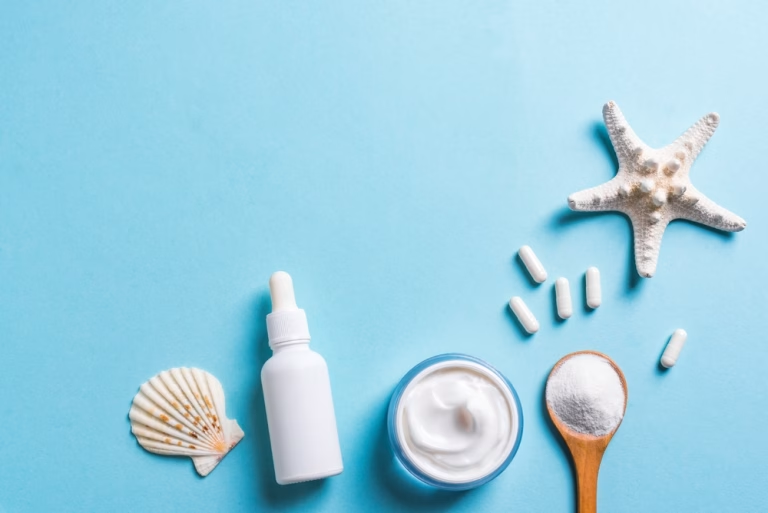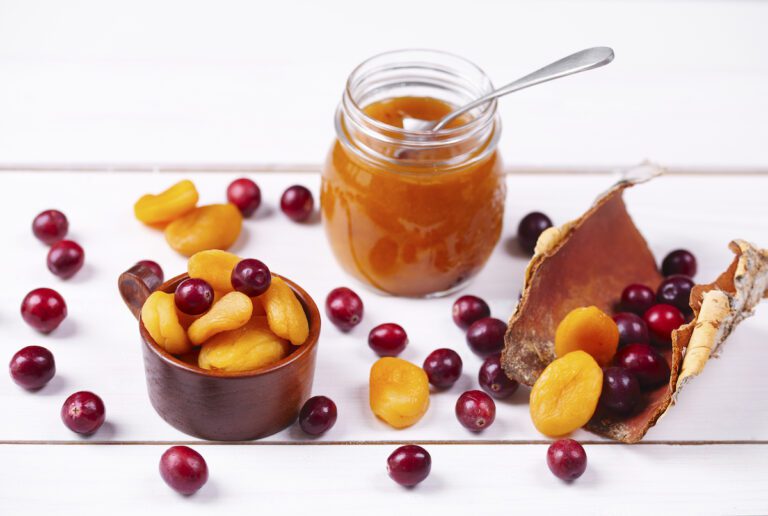Hydrolysed Marine Collagen
Hydrolysed marine collagen, derived from fish skin, scales, or bones, is broken down into smaller peptides for better absorption by the body when consumed as a supplement or used in topical applications. It is commonly marketed for its benefits to skin health, joint function, and connective tissue support.
Comparison to Bovine and Porcine Collagen
Marine Collagen vs. Bovine Collagen: Marine collagen is superior for skin health due to its smaller molecular size and better absorption, while bovine collagen is more beneficial for joints and bones due to its higher Type II collagen content.
Marine Collagen vs. Porcine Collagen: Both are effective for skin rejuvenation, but marine collagen is preferred for those with dietary or religious restrictions, as porcine collagen may not be suitable for everyone.
Characteristics
- Fish-Derived: Hydrolysed marine collagen, rich in Type I collagen and key amino acids, is typically sourced from fish skin, scales, or bones. This makes it a preferred option for those looking for an alternative to bovine (cow) or porcine (pig) collagen.
- Water Soluble, Neutral Taste and Fast Absorption: With a neutral flavour and highly soluble in water, marine collagen is easy to incorporate into various food and drink based applications. Hydrolysed marine collagen is typically absorbed more quickly than other forms of collagen, leading to faster and more efficient results.
- Sustainability: Marine collagen is considered more environmentally friendly and sustainable than land-based collagens (bovine or porcine), especially when sourced from fish by-products (skin, scales, and bones) that would otherwise go to waste. Many brands also prioritize responsible sourcing from sustainable fisheries to further reduce the environmental impact of fish-based products.

Uses of Hydrolysed Marine Collagen:
Beauty, Skin Health and Anti-aging
- Improved Skin Elasticity, Hydration and Healing: Hydrolysed marine collagen supports skin structure by boosting collagen and elastin production, improving elasticity and firmness, while enhancing hyaluronic acid production for better hydration and a more youthful appearance. An important ingredient to consider for beauty and skincare applications.
Joint Health and Mobility
- Supports Cartilage Regeneration: The amino acids in marine collagen, such as proline and glycine, are key building blocks for cartilage, helping to maintain joint flexibility and integrity.
- Improved Mobility: Long-term supplementation may improve joint function and reduce stiffness, contributing to better overall mobility.
Low in Fat and Calories
- Lean Protein Source: Hydrolysed marine collagen is low in fat and calories, making it an ideal addition to a healthy diet, especially for those who are looking to boost protein intake without adding extra fat.
- Supplements: Hydrolyzed marine collagen is available in powder, capsule, or liquid form and is commonly added to smoothies, drinks, and snacks.
- Cosmetics: Marine collagen is found in skin care products such as creams, serums, and masks, where it works to hydrate and rejuvenate the skin.
- Functional Foods: It’s often used as an ingredient in protein bars, beverages, and gummies aimed at improving skin and joint health.




